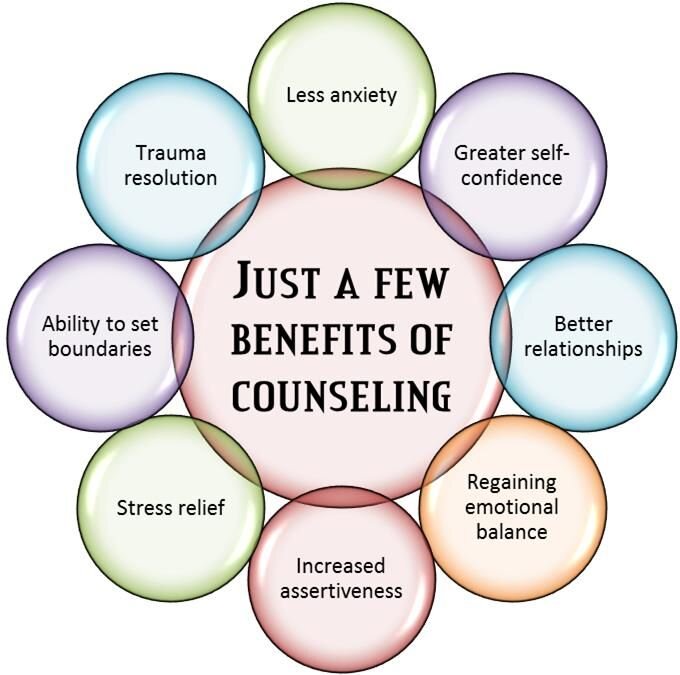Opening the Keys of Mental Health: A Review of Therapy and Therapy Options
Mental health and wellness is a complicated and essential aspect of total health. Many therapy and therapy alternatives exist to resolve numerous emotional difficulties. Each strategy supplies one-of-a-kind benefits and approaches tailored to specific requirements. Understanding these choices is necessary for anyone seeking to improve their mental health. Mental Health Resources. What aspects should one take into consideration when discovering these methods? The response may expose a path to a much healthier psychological state
Comprehending Mental Health And Wellness and Its Importance
Mental wellness encompasses the emotional, psychological, and social health of individuals, considerably influencing how they assume, feel, and act. Its importance can not be overemphasized, as it impacts every aspect of life, consisting of connections, work performance, and total top quality of life. People with good psychological health tend to deal with stress better, keep healthier relationships, and make educated choices. Conversely, poor psychological wellness can result in emotional distress, damaged functioning, and various psychological disorders, which might need professional intervention. Comprehending mental health and wellness is necessary for recognizing the indications of distress and the need for assistance. Recognition likewise advertises empathy and lowers stigma, motivating individuals to look for help when needed. By focusing on psychological wellness, areas can foster settings that support emotional wellness, eventually bring about much healthier, a lot more resistant individuals. This foundation acts as a crucial step towards efficient psychological health counseling and treatment alternatives.
Kinds Of Counseling Approaches
Therapy methods vary commonly, each customized to fulfill the one-of-a-kind needs of individuals looking for assistance. Among the most common kinds are cognitive-behavioral therapy (CBT), which concentrates on identifying and altering adverse idea patterns, and person-centered treatment, which emphasizes empathy and approval. Psychodynamic treatment discovers past experiences and unconscious processes to recognize current behavior, while solution-focused brief therapy intends to determine options instead than examine problems.Additionally, family therapy addresses relational dynamics and communication within family members, cultivating healthier interactions. Group therapy provides a public area for participants to share experiences and sustain one another. Various other techniques consist of existential treatment, which encourages individuals to discover meaning and purpose, and art or music therapy, which utilizes imaginative expression as a restorative device. Each technique provides unique techniques and approaches, enabling clients to find the most appropriate approach for their individual development and healing journeys.
Checking Out Different Therapy Methods
In the domain name of mental health therapy, different therapy methods offer distinctive strategies to therapy. Cognitive Behavior modification stresses the connection in between thoughts and behaviors, while Psychodynamic Therapy explores subconscious influences on psychological wellness. Additionally, Mindfulness-Based Strategies advertise present-moment awareness as a way to improve emotional law and general mental wellness.
Cognitive Behavioral Treatment
Cognitive Behavior Modification (CBT) stands out as one of the most widely practiced and investigated techniques in mental health and wellness therapy. This method focuses on the affiliation between thoughts, sensations, and behaviors, highlighting that altering negative thought patterns can cause boosted emotional health and behavior modifications. CBT is structured, typically including a limited number of sessions, and aims to outfit individuals with functional abilities to handle their symptoms. It works for a range of problems, consisting of anxiety disorders, clinical depression, and trauma. By using methods such as cognitive restructuring and exposure therapy, CBT fosters durability and equips clients to confront difficulties head-on, making it a beneficial alternative in the landscape of mental health treatments.
Psychodynamic Treatment Approaches
Psychodynamic therapy techniques supply a deep expedition of the unconscious mind and its influence on actions and psychological health. Rooted in Freudian theory, these methods highlight the significance of early youth experiences and subconscious problems. Through methods such as totally free association, dream evaluation, and transference, individuals obtain understanding into their sensations and ideas, promoting self-awareness and understanding. This therapeutic method motivates clients to uncover quelched feelings and unsolved concerns, which can be essential in resolving present psychological obstacles. By examining the interaction between previous experiences and existing habits, psychodynamic treatment intends to promote emotional healing and individual growth. Ultimately, it offers a structure for individuals to explore complicated inner dynamics that affect their mental wellness.

Mindfulness-Based Strategies
While conventional treatments often focus on past experiences, mindfulness-based techniques prioritize present-moment understanding as a pathway to emotional well-being. These approaches, including mindfulness-based cognitive treatment (MBCT) and mindfulness-based stress reduction (MBSR), encourage individuals to engage totally with their ideas and sensations without judgment. Specialists discover to observe their mental states, fostering a greater understanding of emotional triggers and actions. This method not only minimizes signs of anxiety and depression yet additionally improves general mental resilience. By integrating mindfulness workouts, such as reflection and deep breathing, customers cultivate a sense of tranquility and clarity. Inevitably, mindfulness-based techniques encourage individuals to browse life's difficulties with boosted recognition and acceptance, advertising a much healthier connection with their ideas and emotions.
The Role of a Therapist or Therapist
A skilled therapist or therapist plays a crucial function in supporting people via their mental published here health trips. They supply a risk-free, non-judgmental space where customers can express their ideas and feelings openly. Cognitive Behavioural Therapy. By employing numerous healing techniques customized to each person's needs, specialists help clients discover underlying concerns that might add to their mental wellness challenges.Therapists supply support and tools to handle stress, anxiousness, anxiety, and other psychological troubles. Their training equips them to acknowledge patterns in habits and thought processes, facilitating understandings that bring about personal growth. They also promote a strong healing alliance, which is crucial for effective outcomes.Moreover, specialists stay fully commited to privacy and honest standards, ensuring a relying on atmosphere. Eventually, the role of a specialist or counselor is to equip individuals, motivating them to establish strength and much healthier coping methods while guiding with life's intricacies
Just how to Choose the Right Counseling or Therapy Option
Picking the appropriate counseling or treatment alternative begins with reviewing individual needs. It is vital to recognize individual obstacles and objectives before exploring various therapy styles. This foundational step can considerably affect the performance of the selected technique.
Examine Your Demands

How can people efficiently evaluate their mental health requires when assessing therapy or treatment choices? They must reflect on their emotional state and recognize specific concerns, such as clinical depression, relationship, or stress and anxiety challenges. Journaling can be a valuable tool for tracking thoughts and feelings in time. Furthermore, individuals may take advantage of looking for responses from relied on close friends or family members concerning perceived adjustments in behavior or mood. It is that site also valuable to evaluate individual objectives for treatment, such as enhancing coping abilities or acquiring insight into individual patterns. Ultimately, investigating numerous therapy methods and their viability for certain requirements can aid in making an informed selection. Eventually, self-awareness plays a crucial duty in choosing the ideal path for psychological health and wellness support.
Check Out Therapy Styles
While going across the varied landscape of therapy alternatives, people ought to consider different designs of counseling to discover the very best suitable for their special needs. Cognitive Behavior Modification (CBT) concentrates on altering negative idea patterns, while Psychodynamic Treatment checks out past experiences and unconscious procedures. Humanistic methods emphasize individual growth and self-actualization, cultivating a helpful environment. Furthermore, mindfulness-based treatments cultivate present-moment recognition, helping psychological policy. For those looking for structure, Solution-Focused Quick Therapy targets particular objectives and remedies. Group therapy gives a public setup for shared experiences and support. Inevitably, individuals should certainly review their choices, convenience levels, and specific difficulties, guaranteeing they select a healing design that reverberates with their individual trip toward mental health.
Getting Over Barriers to Seeking Assistance

The Advantages of Therapy and Therapy for Mental Wellness
Seeking assistance for psychological wellness challenges can cause considerable enhancements in total health. Counseling and therapy give individuals with a risk-free area to discover their feelings and thoughts, fostering self-awareness and personal growth. These specialist services gear up clients with coping strategies and analytic abilities tailored to their distinct situations.Moreover, treatment can lower symptoms of stress and anxiety, anxiety, and various other mental health and wellness conditions, improving psychological durability. Regular sessions promote accountability and motivate individuals to set and accomplish personal objectives. With different healing modalities, such as cognitive-behavioral treatment or mindfulness methods, clients discover to reframe unfavorable ideas and establish healthier behaviors.Additionally, the healing connection itself can be a resource of assistance, assisting to fight isolation and loneliness. In general, taking part in counseling and treatment is a positive step toward achieving mental health, allowing individuals to lead even more satisfying lives.
Often Asked Concerns
How Much Time Does Counseling or Therapy Generally Last?
The period of counseling or therapy varies considerably, usually lasting from a couple of sessions to several months or years. Aspects affecting this consist of the individual's specific demands, the kind of treatment, and healing goals.
What Should I Anticipate During My First Session?
During the first session, people can expect an intro, discussion of worries, and the therapist's technique. They may finish assessments and develop goals, promoting a safe setting for open interaction and building rapport.

Are There Any Kind Of Dangers Related To Treatment?
Treatment can involve threats, such as psychological pain, susceptability, or facing agonizing memories. While these challenges might occur, they can additionally bring about individual growth and healing, making the therapeutic process complicated yet potentially gratifying.
How Can I Tell if My Specialist Is an Excellent Fit?
Determining if a therapist is a good fit entails reviewing convenience, interaction style, and therapeutic strategy. Favorable connection and progress towards objectives are indicators of an appropriate suit, essential for effective mental wellness support.
Will My Insurance Policy Cover Therapy or Therapy Procedure?
Establishing insurance policy protection for counseling or treatment sessions typically calls for calling the insurance supplier directly. Plans differ considerably, so individuals should validate benefits, co-pays, and any type of essential pre-approvals prior to pursuing treatment services. Amongst the most common kinds are cognitive-behavioral treatment (CBT), which concentrates on recognizing and changing negative thought patterns, and person-centered therapy, which emphasizes compassion and acceptance. Psychodynamic treatment checks out subconscious procedures and previous experiences to understand present actions, while solution-focused quick treatment intends to identify remedies rather than explore problems.Additionally, family treatment addresses relational characteristics and communication within family members, fostering much healthier communications. Other techniques consist of existential special info therapy, which motivates people to find meaning and function, and art or music therapy, which uses creative expression as a therapeutic device. Cognitive Behavior Therapy emphasizes the link in between ideas and habits, while Psychodynamic Therapy checks out unconscious impacts on psychological wellness. Cognitive Behavior Treatment (CBT) focuses on changing unfavorable idea patterns, while Psychodynamic Treatment checks out unconscious processes and past experiences.